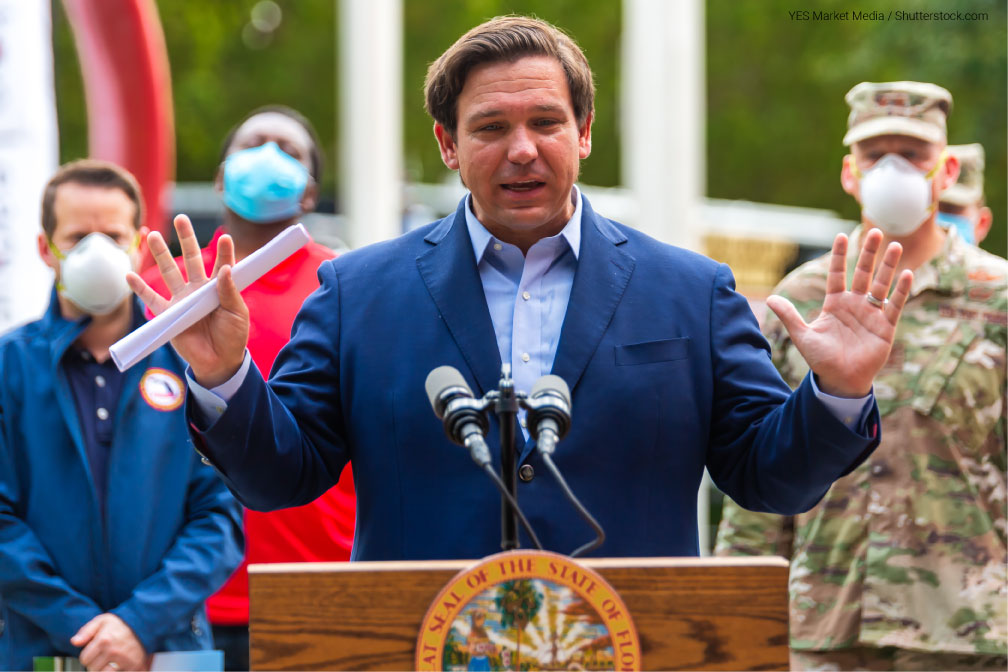
Behind the headlines: Clarity or deception?
This article is from a previous issue of our Get Smart About News newsletter for the general public, which explores timely examples of misinformation as well as press freedom and social media trends and issues. Subscribe to our newsletters.
Written by: Peter Adams

Florida Gov. Ron DeSantis answers questions about his state’s COVID-19 response at a press conference at the Urban League of Broward County on April 17, 2020.
An April 4 report from the long-running CBS News newsmagazine 60 Minutes on disparities in Florida’s vaccine rollout has touched off a wave of criticism questioning the piece’s accuracy and fairness.
The controversy stems from the report’s unsupported suggestion that Republican Gov. Ron DeSantis used the state’s vaccination program to engage in a “pay-to-play” scheme with the supermarket chain Publix when he announced a distribution partnership with the company in January, shortly after it donated $100,000 to his political action committee.
But critics of this segment of the report say it failed to provide substantive evidence of wrongdoing and mischaracterized key details. The report also included footage from a press briefing at which 60 Minutes correspondent Sharyn Alfonsi asked DeSantis about the Publix relationship. However, important parts showing DeSantis denying wrongdoing (at 32:30 in footage of the briefing) weren’t included in the clip. The director of the Florida Division of Emergency Management, Jared Moskowitz, and Palm Beach County Mayor Dave Kerner, who are both Democrats, have backed up the governor’s account.
CBS News defended the edits and stands by the report. At the conclusion of its April 11 episode, 60 Minutes acknowledged criticism of its report and read several letters from viewers. DeSantis, meanwhile, has responded to the incident by going on the offensive, broadly accusing “partisan corporate media” of maliciously trying to damage him.
Note: Most of the 60 Minutes report presented accurate information about well-documented racial and economic disparities in the state’s COVID-19 vaccination distribution. But the controversy over the DeSantis allegations overshadowed that reporting.
Also note: CBS said DeSantis declined to be interviewed by 60 Minutes for the report.
Related:
- “Opinion: ‘60 Minutes’ embraces innuendo in Ron DeSantis story” (Erik Wemple, The Washington Post).
- “Not everything was wrong with the ‘60 Minutes’ story on Florida Gov. Ron DeSantis and COVID-19 vaccines” (Tom Jones, Poynter).
- “Ron DeSantis is Taking His 60 Minutes Feud All the Way to the Bank” (Charlotte Klein, Vanity Fair).
- “Why Being ‘Anti-Media’ Is Now Part Of The GOP Identity” (Meredith Conroy, FiveThirtyEight).
Discuss: Can journalists include everything a source says in their reporting? How should journalists decide what portions of interviews to include and which to leave out?
Idea: Use this video comparison from NLP to highlight for students the edits 60 Minutes made to the governor’s response to Alfonsi’s question. Do they agree with CBS’ claim that these were justifiable edits made for clarity? Or do they agree with claims by DeSantis that the editing was deceptive and unfair?
